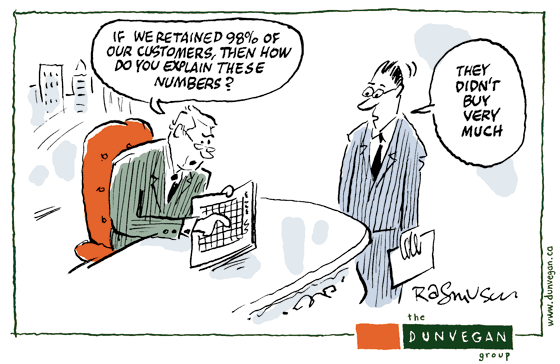
Perhaps you’ve heard of something called “guerrilla marketing” and wondered what it was.
The name is derived from guerrilla warfare, a technique that allows a small force to fight a much larger, state-sponsored army by being creative and doing a lot with little.
In general, of course, marketing is a contest for people’s attention. According to author and business blogger Seth Godin, it’s about conducting research, determining a market, and planning, implementing, measuring and optimizing results. It requires constantly watching the marketplace and deciding what is working and what isn’t. It’s an evolutionary process rather than an event.
Guerrilla marketing, then, is about creative ways to increase market share inexpensively.
“Guerrilla Marketing is about focusing on results over activities and profits instead of revenues,” Jason Myers, chairman of Guerrilla Marketing Global LLC, said in a presentation he gave at a sold-out Port Charlotte SCORE and Northport Area Chamber of Commerce meeting.
“Guerrilla Marketing” (1983, Amazon, $12.58), a book by Jay Conrad Levinson, a founder of the same company, sold 22 million copies and has been required reading in almost every MBA program in the world. It has been named one of the 10 most important business books.
Guerrilla marketing encompasses publicity, marketing, retail sales, deal making, financial advice and efficiency. It’s about unconventional thinking as well as out-of-the box stuff; making things happen out of very little. It’s important to be profitable in a small business, or there will be no business.
Here are some highlights from the presentation.
Guerrilla marketing presentation
Jason Myers will give his presentation on guerrilla marketing to the Manasota Chapter of SCORE, its clients and mentors, from 5:30 to 7:30 p.m. Dec. 12 in the Benderson Family Finish Tower at Nathan Benderon Park, just south of University Parkway and west of I-75. Myers will provide a list of 200 marketing weapons. The event costs $20.
Create a 7-sentence marketing plan
1. Purpose – Define what you do and what you want to do.
2. Prime benefit and advantage – Name the one thing you do better than anyone else.
3. Target audience – Identify your customers and your potential customers.
4. Weapons – List the resources that you have to communicate with customers and prospects.
5. Niche – Use a one-word description of your uniqueness.
6. Identity – Determine your business personality.
7. Budget – Decide how much you can afford to spend.
Your competition
You must know what your competition is doing by assessing their strengths and weaknesses. What does your competition market and how do they market? Are they the leader or a follower in your space? When you target your ideal customer, you need to know where they are most likely to see your message. Where do they hang out?
Your elevator pitch
In the time it takes to ride in an elevator (about 30 seconds), you should be able to describe your business. Succinctly explain what your business does and how it is unique. Your elevator pitch should be memorable, repeatable and all employees should know it.
I stumbled upon a good template for an elevator pitch. It goes like this: My company (name) offers (what you offer), helping (audience) value proposition (problem solved) by (how you do it, the secret sauce).
Sample: My company, Zink Business Alchemy, offers consulting services to help business owners become the dominant force in their niche with guaranteed results.
Reciprocity
Leverage the law of reciprocity by giving a gift to prospects such as free samples, trial periods or a free consultation.
Business card tips
Make sure your business cards stand out. Quality matters, and don’t forget to use both sides. Declutter, as less is more. Include an offer and a call to action. Make sure the paper can be written on (ink friendly) because people often scribble notes on business cards.
Website priorities
Most small-business websites are poorly designed. Make sure your website is focused on generating leads. Update your website regularly, keeping it fresh and current. Answer common questions and measure results. Your website must be mobile friendly or you will be penalized by Google in search results. Look at websites you like and consider how their design can apply to your content and marketing.
Organic social media
Create a group (LinkedIn, Pinterest, etc.) around a topic related to your business, but not your business. Contribute to this group in an effort to help others and build relationships. Be aware that constant promotion is annoying and ultimately will be ignored.
Create a topic-based (not brand-based) MeetUp group. Develop a community of fans. Over time, people will get to know, like and trust you. Network in other communities such as Facebook groups, associations and clubs.
Testimonials and referrals
Collect testimonials for use in your business. Always ask for referrals and thank your customers for them.
Remember, the jungle is a rough place, and learning guerrilla marketing will help you survive.
Dennis Zink is a volunteer, certified mentor and chapter chairman of Manasota SCORE. He is the creator and host of Been There, Done That! with Dennis Zink, a nationally syndicated business podcast series. He facilitates a CEO roundtable for the Manatee Chamber of Commerce, created a MeetUp group, Success Strategies for Business Owners and is a business consultant. Email him at centreofinfluence@gmail.com.